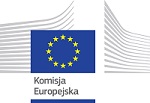Collegium Civitas jest członkiem Jean Monnet Network, w ramach którego realizuje projekt „Pamięć i sekurytyzacja w Unii Europejskiej i krajach sąsiedzkich” (NEMESIS), przy współpracy Rosyjskiego Uniwersytetu Federalnego (lidera projektu) oraz uniwersytetów w Bremie, Amsterdamie i Uniwersytetu Nauk Stosowanych w Wiedniu. NEMESIS skupia naukowców pracujących nad kwestiami związanymi z bezpieczeństwem, pamięcią i tożsamością w kontekście rozwijających się stosunków między Rosją a Europą.
Uczestnicy projektu stawiają sobie za cel zrozumienie wielostronnego charakteru stosunków UE-Rosja oraz zachodzących w nich ewolucyjnych zmian. Badanie relacji między bezpieczeństwem, pamięcią i tożsamością ma służyć przede wszystkim wzbogaceniu planów nauczania u wszystkich partnerów. Zespół NEMESIS skupia się również na badaniu roli Unii Europejskiej w krajach Europy Wschodniej, oraz na kwestiach dotyczących ryzyka politycznego w regionie Morza Czarnego, języka, tożsamości i polityki pamięci.
—
Collegium Civitas is proud to be a member of the EU-funded Jean Monnet Network 'NEMESIS’ which is led by the Russian Southern Federal University with the involvement of the Universities Bremen, Amsterdam, and the University of Applied Sciences in Vienna. This high-level network brings together academics working on issues to do with security, memory and identity in the context of evolving relations between Russia and Europe.
EU funding is a recognition of the quality of the NEMESIS network and the standing of the contributing Universities. NEMESIS makes a timely contribution to understanding the multifaceted nature of EU-Russia relations and its evolutionary course. By identifying and examining the interactions between security, memory and identity, the network will yield nuanced research findings which will enrich the teaching agendas of all partners.
Over the course of three years NEMESIS will conduct summer schools, the first of which was held in Collegium Civitas in September and was attended by sixteen high calibre students from all over the world. The NEMESIS team will also be pursuing original research on issues relating to the EU’s role in Eastern Europe, Political Risk in the Black Sea region, Language, Identity and Memory Politics.
Dr Kerry Longhurst (Jean Monnet Chair) is responsible for Collegium Civitas’ contribution to NEMESIS, students and staff are welcome to contact if if they would like to participate in any activities





————————–
the ‘NEMESIS’ Summer School
‘Imagining the Neighbourhood In Between:
Russia, Europe, Memory and Security’
Summary
19 – 23 September saw the ‘NEMESIS’ Summer School take place at Collegium Civitas. NEMESIS is an EU-funded Jean Monnet network led by the Southern Federal University in Rostov-on-Don. Alongside Collegium Civitas the network involves the Universities of Amsterdam, Bremen and Applied Sciences in Vienna. The network comprises a multidisciplinary team of academics with a shared interest in Eastern Europe, the EU and the conceptual and practical interrelationships between security and memory.
The Summer School was attended by sixteen high caliber students from a diverse set of countries, including Germany, New Zealand, Syria, the UK, Azerbaijan, Turkey, Ukraine and Russia. A range of innovative teaching methods were used, including workshops, expert panels and role-play exercises on European identities and the evolution of integration in the former Soviet space. Students learnt about EU neighbourhood policy, the Eurasian Union, theories of memory in international relations, political risk and its effects and also developments in Russia’s relations with Europe and the contrasting historical discourses that surround them. Students also enjoyed visits to the Warsaw Uprising Museum and the Museum of the history of the Polish Jews.
There will be a second NEMESIS Summer School next year in Rostov. Details will be posted on
The project is supported by European Union



